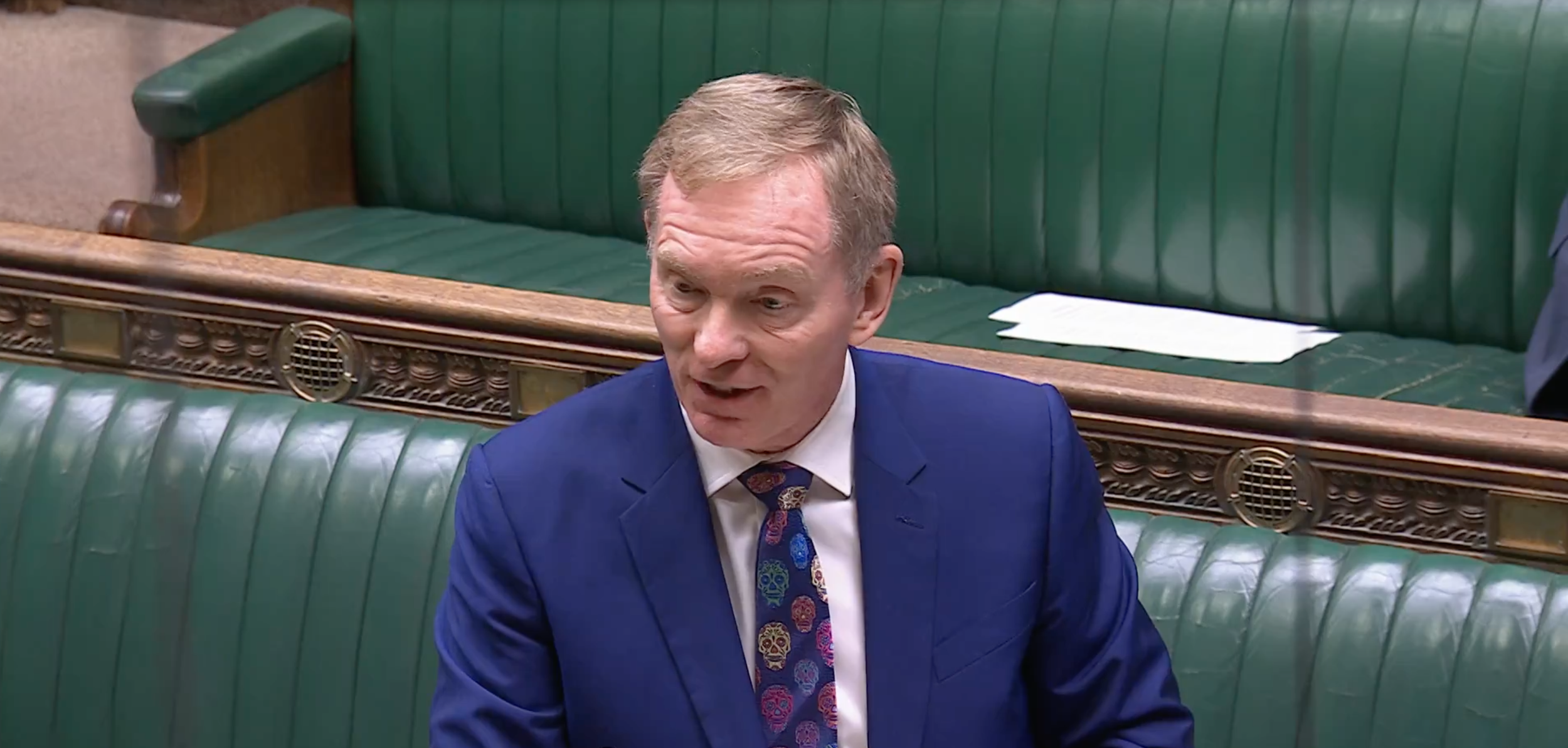Government efforts on streaming reform fall short of a reset – Next steps?
Yesterday afternoon in Parliament, Minister Chris Bryant announced the UK Government’s endorsement of the BPI’s new streaming code [skip to 14:28:36] —a set of voluntary commitments made solely by the major record labels and supported by the Association of Independent Music. It marks a significant point in a process that began with the Culture, Media and Sport Committee’s 2020 inquiry, which heard from a wide range of voices across the music industry—artists, songwriters, producers and managers—about the deep structural inequalities in streaming.
The Committee called for a “complete reset” of the streaming economy. Since then, the Government convened a series of committees with the industry, which included the formation of the Creator Remuneration Working Group to look at how music makers are paid. The Featured Artists Coalition has participated in this process alongside our colleagues in the Council of Music Makers (CMM) (FAC, MMF, MU, Ivors and MPG), advocating for real, meaningful reform to support those who actually make the music.
But what’s been announced by the Government is not that – today, we start the fight for legislative change.
Despite the BPI principles falling short, alongside our colleagues in the Council of Music Makers, the FAC will work with our artist community to actively test whether the commitments outlined in the BPI code are upheld.
We need your help for this.
This means gathering real-world evidence on how contract renegotiations are handled, how artists are treated when requesting fairer terms, and whether “good faith” truly translates into progress. Your experiences will be crucial in holding the industry to account.
This is not an industry-wide agreement
Let’s be clear: despite claims from the Secretary of State for Culture, this BPI code is not an industry agreement. It was created by and for the BPI’s label members, without agreement from the FAC or other members of the Council of Music Makers. It falls significantly short of the ambition shown by Parliament, and is couched in vague, non-binding language. It does not deliver the structural change required to fix the broken economics of music streaming.
Worse still, we are already seeing what appear to be exaggerated and unsubstantiated claims about how much more money artists will earn as a result of these proposals.
As the Council of Music Makers combined response stated:
"We are disappointed that these outcomes fall significantly short of the complete reset the CMS Committee originally called for – and that the Government initially supported. We believe the major music companies had a clear opportunity to modernise their outdated and unfair models, and to show leadership, but they have chosen not to take it."
→ Read the full CMM outcomes statement
Where the BPI Code Fails
1. Contract renegotiation terms - no guarantee of improved royalties
Under the new code, record labels have committed to respond to artist or manager requests to renegotiate outdated contracts within 60 days. But they are under no obligation to offer improved royalty terms. Discussions will be held “in good faith,” but without any measurable outcomes, this is toothless.
However, the FAC and the wider Council of Music Makers, will now be able to raise concerns directly with the BPI and the Government where these commitments are not being met.
If you want to test these promises now, we encourage you to use the CMM’s contract renegotiation resource, which includes practical tools and guidance for submitting requests:
→ https://councilmusicmakers.org/contractrenegotiation
2. Rejection of modern royalty rates
Alongside our colleagues in the CMM, we have consistently called for contemporary, fair digital royalty rates for all artists. This ask has been rejected. For artists tied to outdated contracts, this refusal keeps them locked into a streaming economy that doesn’t work for them.
3. Unrecouped balances “disregard” lacks clarity & will not be rolling
The majors have reaffirmed their 2022 commitment to disregard unrecouped balances on pre-digital contracts—under certain conditions. Whilst Sony’s commitment is on a rolling basis, meaning new artists are eligible for pay through each year, Warner Music Group and Universal Music Group refuse to match this best practice, which is also adopted by many independent labels. This means artists who signed contracts after 1st January 2000 will not be paid royalties until unrecouped balances are paid off from their (usually very low rate) royalties.
4. Per-diem payments for non-performing songwriters
Non-performing songwriters will now be able to receive small, non-recoupable per-diem payments for attending speculative writing sessions. Guidance on this will be issued by the Ivors Academy. This is a welcome step, but it does not materially change how streaming revenue is shared with songwriters. The major labels have committed to ensuring this cost is not paid by artists as a recoupable cost.
5. Performer fund rejected - session musicians’ fees increased (unrelated to this process)
The CMM made calls for a collectively managed fund, which would see a small amount flow from streaming to a performer fund, to be paid out to all performers on a recording, regardless of their contractual terms. This was flatly rejected and received little discussion during the process.
An increase in session musician fees from £130 to £182 is also included in the announcement. However, this was already agreed prior to the streaming code and is not linked to streaming revenues. The Musicians’ Union has made clear that session musicians continue to be excluded from any meaningful share of streaming income.
6. Marketing support for legacy artists
The majors have also announced additional marketing support for legacy artists, especially focused on helping them use platforms like TikTok and Instagram. This might have some value to artists who are still active, but it is not a substitute for fair and sustainable income for all artists who are tied to deals that are unfit for the modern business, but whose work still earns money for labels. It is not a tangible commitment for artists who are no longer active, but whose work is still being exploited.
What’s Next – Our Plan
1. Legislative reform
Together with our partners in the Council of Music Makers, the FAC will continue to push for real legislative change through the upcoming copyright reform process and AI legislation.
This includes:
Fair minimum royalty rates for streaming.
Contract adjustment rights.
Reversion rights so artists and songwriters can reclaim their work after a set period.
Today, the Musicians’ Union, backed by the Council of Music Makers, has launched a petition calling for legislative change to fix streaming. Please support it, please share it.
2. Monitoring outcomes
The Government has committed to working directly with us to monitor whether these voluntary commitments result in a real-world improvement in artist and songwriter incomes over the next 12 months. Minister for Culture, Sir Chris Bryant has confirmed that legislative intervention remains an option if change does not come.
3. Use the code to test labels’ promises
If you are not on a fair, modern royalty rate, we encourage you and your team to test these commitments now. You can use our guide and the CMM’s contract renegotiation resource to begin the process. If you face resistance, delays or poor-faith negotiations, please let us know. The FAC will escalate these issues in confidence, and only with your express permission, to the BPI and to Government.
The truth: this is not a “reset”
The streaming code does not reset the music industry. It’s not close. It’s a set of modest, voluntary tweaks announced by one part of the industry, with no enforcement and no tangible acknowledgement of input from the music-makers themselves.
Music-makers—artists, songwriters, producers, musicians—deserve more than symbolic gestures. They deserve a system where their work is properly valued, and where they can build sustainable careers.
The FAC, with the full support of our fellow CMM member organisations, will continue to push for nothing less.
How can you help?
Back the petition to Fix Streaming through legislation.
Test the BPI code and request contract renegotiation using this tool.
Contact the FAC if you face any pushback—we will keep everything confidential.
Stay engaged as we push for legislative reform in Parliament.
Share this message widely to help push back on spin and keep the truth in the spotlight.
Contact us directly for support or to report challenges: Your information will always remain confidential and will only be shared with your permission.

